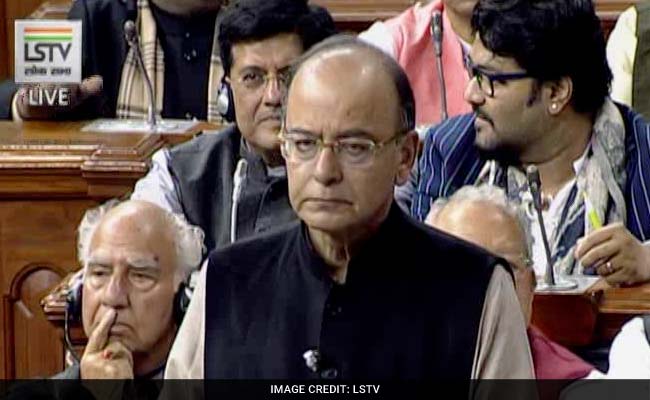Amidst much speculation that there was nothing ‘exceptional’ about the budget with many commentarors, cautious in their praise and even calling it boring, a closer look at the fine-print shows how it contains what, could be converted in a campaign with poll sops.

The Economic Times reports how the pre-poll Budget has been carefully wrapped in a prudent, stay-the-course Budget. Budget 2017 is replete with proposals that target voter groups strategically and project an image of a pro-poor, pro-farmer, pro-small business, pro-youth and anti-rich government.
Scroll. In comments that the Election Commission’s conscience should be pricked at the Finance Minister Arun Jaitley’s budgetary proposal to grant income tax relief to people who fall in the income slab of Rs 2.5 lakh-Rs 5 lakh a year. This proposal, cutting their tax rate from 10% to 5% was announced on February 1, even as the model code of conduct for the elections is in place, will certainly have an impact on the upcoming polls in five states – not so much by guaranteeing a sweep for the Bharatiya Janata Party and its allies but by elevating the mood of those who have reeled under the harsh consequences of demonetisation.
A sensible Election Commission would have also found problematic the focus of the Budget for 2017-’18 on agriculture and its subtle bolstering of the Narendra Modi government’s narrative on combating the menace of black money, initiated through the big-bang announcement of the invalidation of high-denomination notes on November 8.
Prime Minister Modi is sure to boast about the budgetary proposal barring political parties from receiving cash donations exceeding Rs 2,000 at election meetings over the next month. He is likely to present it as an example of his resolve to cleanse Indian politics of the inimical influence of black money.
To communicate to the voter that We are not 'suit-boot ki sarkar', the Budget refused to offer tax cuts to big companies even though Jaitley had himself said two years ago that he would progressively reduce it to 25 per cent from 30 per cent. Voices of corporate dissatisfaction will only project the government as anti-corporate, something that voters are going to approve.
Though avoiding the demonetisation blues up front, the compensation for the move of the government has been offered in the move to reduce income tax from 10 per cent to 5 per cent for the lowest taxpayer is targeted at small businesses and shopkeepers, and also the employees at the lowest rungs who form a big part of the voting middle class. These were the people who were not already used to digital payments unlike taxpayers in higher brackets.
Snatching from the Rich to Benefit Poot
Taxing those earning Rs 50 lakh to Rs 1 crore a year with a surcharge of 10 per cent is a dead giveaway to the voting masses that the tax cut for the lowest taxpayers will be funded by snatching from the rich taxpayers. The move is too starkly obvious for the voters to not put two and two together.
Only Small Units Benefit from Corporation Tax
By offering cut in corporation tax only to companies with annual turnover upto Rs 50 crore, the government has tried to send the message to both the owners and the laid-off workers.
Political Funding
The steps to make political funding more transparent—irrespective of how effective they are eventually—have sent some sort of message to the voters: even though the move is more cosmetic.
The Scroll comments, “Those manning institutions such as the Election Commission, as well as bureaucrats and police officers, would do well to turn their gaze to the United States. There, you see a mutiny of sorts in the US administration against President Donald Trump’s controversial executive orders banning travelers from seven Muslim countries from entering the country and suspending the refugee admissions system for 120 days.”
India has shown no such institutional resistance so far.